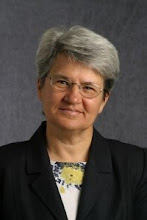
Trees exchanging coverings of effervescent greens for shades of flaming tones of red and gold, chilled bodies warming beside pub hearths, the start of school and the end of the cricket season, - all signal the arrival of fall in England. And, for many, the arrival of cooler weather begs more leisurely time to be spent over 'a nice cuppa tea.'
Tea is often thought of as being quintessentially British but it was the marriage of Charles II to Catherine of Braganza that established tea as the national drink of England. She was a Portuguese princess and a tea addict and it was her love of the drink that made tea a fashionable beverage first at court and then among the wealthy classes as a whole. Capitalising on this, the East India Company began importing tea to Britain, its first order being place in 1664 for 100 lbs of China tea.
By the 18th century many Britons wanted to drink tea but could not afford the high prices and their enthusiasm for the drink was matched by the enthusiasm of an organised crime network to smuggle it in. Worse for tea drinkers was that taxation (as much as 25p per pound) also encouraged the adulteration of tea, particularly of smuggled teas which was not quality controlled through customs and excise. Leaves from other plants or leaves which had already been brewed and then dried, were added to tea leaves. Sometimes the resulting colour was not convincing enough, so anything from sheep's dung to poisonous copper carbonate was added to make it look more like tea.
By 1784, the government realised that heavy taxation was creating more problems than it was worth. The new Prime Minister, William Pitt, slashed the tax from 119% to 12.5%. Suddenly legal tea was affordable and smuggling stopped virtually overnight.
In 1851, when most all tea in Britain came from China, annual consumption per head was less than 2 pounds. By 1901, fueled by cheaper import of tea leaves from India and Sri Lanka (then Ceylon), consumption rocketed to over 6 pounds per head. Tea-drinking as an established part of British life was officially recognised during the 1st World War, when the government took over the importation of tea 'to ensure that this essential morale-boosting beverage continued to be available at affordable prices.' The government took control again during WW2 and rationed tea from 1940 until 1952.
Nowadays it would be hard to imagine British life without tea. In fact, so important is this relationship with tea that masterclasses are offered in the fine art of tea making and tea tasting for the modest sum of £175 for the day, by Jane Pettigrew at the upscale Chesterfield Hotel, London. (One fact you might be taught is that the tea bag was invented by an American in the early 20th century.)
Although possessing little knowledge or expertise in the matter, I thoroughly enjoy preparing and sharing a nice cuppa tea with a friend. Do you take yours white (with milk)?

No comments:
Post a Comment